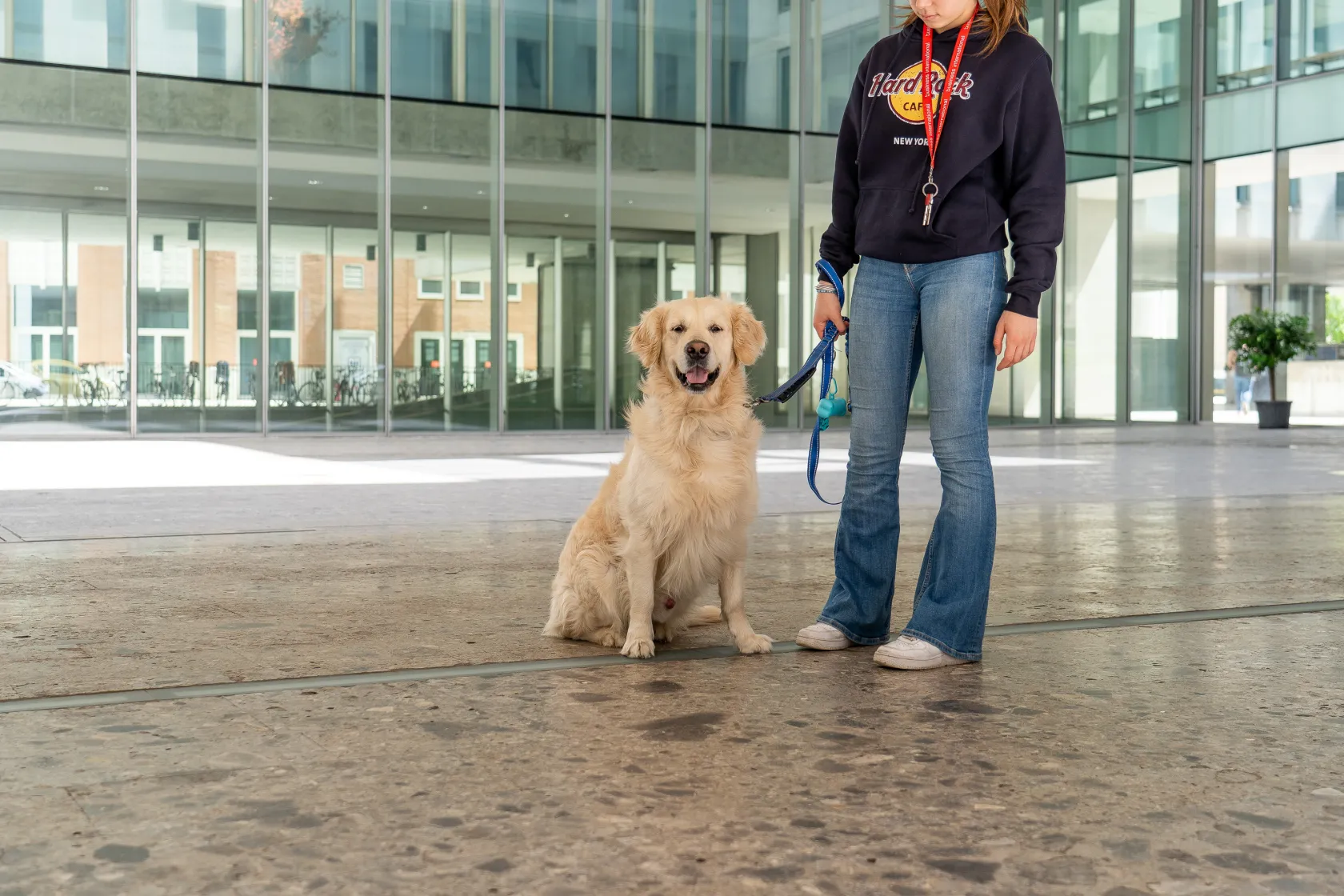
Service Dogs Now Allowed in Classrooms and Offices
With a decisive step forward on the issues of inclusion and protection of people with disabilities, service animals are now officially allowed to enter classrooms at Bocconi. Actually, to be more precise, they were already allowed given that last September, Kika – a small, highly trained dog – was admitted to the Global Law classroom alongside her owner, for whom Kika is an indispensable companion to study in serenity to protect their health. Following the example of what is already happening in many universities outside Italy, Bocconi has decided to adopt this inclusive practice, adapting it to its context (extending it to those who work here, i.e. staff and faculty) and regulating it. This is how the "On-Campus Service Animals” procedure was created, intended for service dogs. From now on, in addition to guide dogs for people who are blind – allowed everywhere by law – service dogs accompanying a person with motor or sensory disabilities, psychiatric conditions, and serious or chronic diseases may also have access to the University upon request accompanied by the necessary documentation. It is an experience that stems from the idea of implementing inclusive teaching that is attentive to the needs of the individual. This is another step towards the full recognition of the rights of persons with disabilities also enshrined in the 2006 UN Convention whose preamble reads: "The purpose of this Convention is to promote, protect and ensure the full and equal enjoyment of all human rights and fundamental freedoms by all persons with disabilities, and to promote respect for their inherent dignity."
To request access for your service dog, please contact the Inclusion Service which will evaluate the request – along with any necessary documentation – and bring it to the attention of the Inclusion, Disability and Wellbeing Committee.
translated by Rosa Palmieri